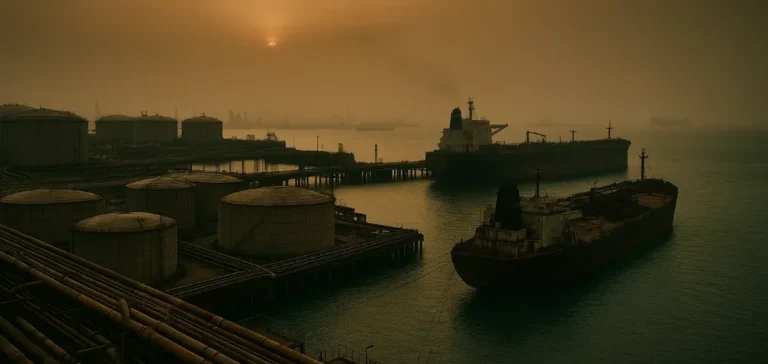For several decades, Iran, a founding member of the Organization of the Petroleum Exporting Countries (OPEC), has faced a progressive erosion of its influence on the global oil market. This decrease primarily results from US sanctions, continuously falling production, and growing reliance on China as an outlet for its crude oil.
US sanctions and economic consequences
US sanctions imposed under the so-called “maximum pressure” policy initiated in 2018 have drastically limited Iran’s ability to export its oil. At its peak, before the revolution of 1979, the country produced over six million barrels per day (b/d). Today, this production is limited to approximately 3.24 million b/d according to the latest available data. This volume, although increasing compared to 2020 when it stood at just 1.95 million b/d, remains significantly lower than historical levels.
Moreover, the country is now exempt from quotas within OPEC due to these sanctions, thus limiting its influence in the strategic decisions taken by the organisation dominated by Saudi Arabia. Historically influential within the oil cartel, Iran now sees its calls for measures such as embargoes or oil blockades ignored by other members of the OPEC+ alliance.
Increased dependence on China
China is currently the only significant outlet for Iranian oil, absorbing nearly all of its exports. Last May, Iranian exports reached 1.6 million b/d, mostly directed toward China via indirect routes such as Singapore. This figure remains below the 2.6 million b/d exported on average in 2017, when Iran still supplied refineries in India, South Korea, Turkey, and Europe.
This dependency on a single trading partner leaves the Iranian economy vulnerable, especially to fluctuations in Chinese demand or potential diplomatic disagreements between Beijing and Tehran. Additionally, the current export logistics largely rely on old vessels, comprising a so-called “shadow” shipping fleet, further increasing the fragility of Iran’s export system.
Political instability and military impact
Recent Israeli airstrikes have directly targeted several major Iranian energy installations, including the South Pars gas field and oil depots near Tehran. Although the Kharg export terminal, key to Iranian oil infrastructure as it handles 90% of oil exports, remains operational, the impact of these attacks is already raising concerns about potential fuel shortages in the domestic market.
The deteriorating security environment weighs heavily on the Iranian economy, already weakened by rampant inflation and high unemployment. In this situation, revenues from oil remain a vital source of support for the national economy.
Restricted international leverage
Despite these difficulties, Iran retains indirect influence through its regional allies such as Lebanese Hezbollah or Palestinian Hamas. The threat of blocking the Strait of Hormuz, through which about 20 million b/d transit daily, remains a feared possibility for the global market. However, this extreme measure could further diplomatically isolate Tehran regionally.
Despite still holding these cards, the significant retreat of its role in the global oil sector considerably restricts Iran’s diplomatic and economic leeway. The ongoing decrease in production, combined with heightened trade dependency, places the country in a particularly vulnerable position with respect to changes in the global market.






















